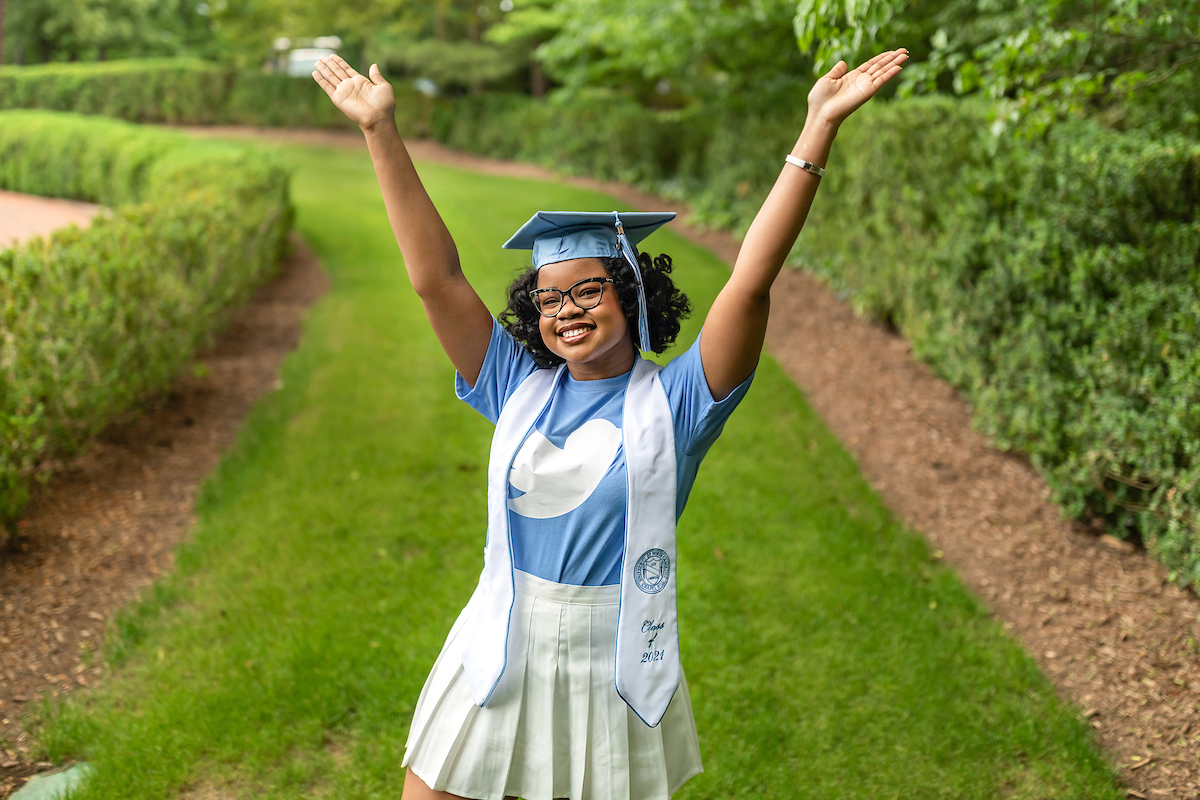Watson — a computer science and women’s and gender studies double major — has been an advocate for underrepresented populations in tech.

It takes more than 280 characters — the length of a tweet — to understand how graduating senior Tylar Watson, a double major in computer science and women’s and gender studies, landed a job at Twitter.
Computers didn’t interest her when she was younger, even though her mother — a computer science major and tech employee — regularly sent her to coding camps. “I was like, ‘I’m going to be a fashion designer. I don’t know why I’ve been sent here to learn how to build a computer game.’”
But something about all of that exposure shifted her outlook. “I like to say that I became interested in computer science sort of in the same way that you end up buying a snack after seeing a lot of advertisements on TV,” says Watson, who is a member of the Chancellor’s Science Scholars. “I kept going back to different programs and being exposed to different opportunities.”
Now, thanks in part to her internship at Twitter Academy — a 12-week summer program she participated in her sophomore year — she’ll be joining the company to work on backend tools after graduating this weekend. “The area is called ‘Effective Engineering,’” she explains, “so it works on different tools and processes that help other engineers as they’re creating and working on different products.”
For Watson, getting to Twitter is the culmination of a lot of hard work. She approached her time at Carolina tenaciously but working toward a dual degree in computer science and women’s and gender studies didn’t always make sense to her. “I had no plans as to how I would bridge the two together,” she says.
Eventually, after seeing how women and non-binary students struggled to find a place in tech, Watson used her free time to address the matter. She volunteered with Girls Who Code, an organization dedicated to closing the gender gap in tech, and worked with Pearl Hacks, a women-friendly hackathon hosted at Carolina.
Still, between classes and research and clubs and volunteering, Watson found that she was wearing thin by the end of her sophomore year. “A lot of times at Carolina, and this is something you hear across the board, it’s very easy to get in over your head,” she says.
The downside to ambition, when it’s not balanced with rest and self-care, is burnout, and Watson felt herself nearing that edge after her second year. “The quickest and hardest way to learn your boundaries is pushing straight past them and then getting pushed right back, which I do not recommend, but it’ll teach you,” she says.
Thankfully, her time at Twitter that same summer helped her find a healthy balance. “I really learned about myself and the importance of self-alliance and self-identify and self-independence,” she says. “And not in the sense that I’m a lone wolf, but more so in the sense of being able to recognize your own boundaries and your own limits.”
Twitter ultimately gave her a glimpse of life beyond college, and her extracurriculars at Carolina helped her hone her larger purpose in tech to prepare for it. Although Pearl Hacks was held virtually this year, she fondly recalls the opening ceremony of years past, when being in the room with hundreds of women and non-binary students felt purposeful — and powerful. “I want to continue to give people that type of empowerment and strength,” she says.
Watson plans on continuing to work or volunteer with underrepresented populations in tech. She knows it’s critical for the industry. “Computer science is about problem-solving and innovation and creating new things,” she says. “And the best problem solving comes from a diversity of people and thought processes in a room.”
By Amanda Wicks, University Communications
